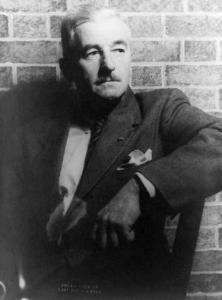Wow! There are a lot of writing software packages available!
By writing software, I’m not talking about word processors like Corel Write, Microsoft Word, TextMaker, WordPerfect, etc. I mean software designed to help you write fiction stories, software packages like Liquid Story Binder, Marshall Plan for Novel Writing, Master Storyteller, MyNovel, Power Structure, Power Writer, Scrivener, StoryBlue, Storybook, StoryCraft, StoryWeaver, WriteItNow, Writer’s Café, Writer’s DreamKit, WriteMonkey, and yWriter5. I’m sure I’ve left out some…sorry.
 Would you like a nice analytical comparison of all those writing software packages to help you choose the best one for you? Again, sorry, wrong blog post. I don’t have the money or time to buy, test, and rate software packages, (though that would be interesting).
Would you like a nice analytical comparison of all those writing software packages to help you choose the best one for you? Again, sorry, wrong blog post. I don’t have the money or time to buy, test, and rate software packages, (though that would be interesting).
When I thought of the idea for this blog post topic many months ago, I had intentions of test-driving at least two or three and giving you a comparison of those, at least. Alas, that didn’t happen.
However, I did try out yWriter5, so I can comment on that one. I also was given a disk with Writer’s DreamKit, but it reacted badly with my computer for some reason, and after restoring things I haven’t been brave enough to try it again. I don’t blame the Writer’s DreamKit software; I was able to explore around in it and get a feel for it, but I had problems when I restarted my computer the next time.
yWriter5 is free! It allows you to organize your novel by scenes, then chapters. It keeps readily available all the information about your characters, scene locations, and significant ‘items’ (objects) in your story. It has a storyboard feature; it includes a word usage feature to see if you’re over-using certain words; and it keeps track of your daily word count in a log. There are many more features, too.
I used yWriter5 for one of my short stories. For a short story, yWriter has far more features than I needed. It was a good way to organize notes, characters, etc. Since I do much of my writing while away from a computer using an ancient method involving a ‘pen’ and a ‘pad of paper,’ I was pleased with yWriter’s ability to print reports that could include my characters, scenes, items, and notes. I think yWriter would be quite useful for a complex novel.
In my brief exposure to Writer’s DreamKit, I found that the software asks you an enormous number of questions before you can get going. If you have good ideas for your story in your head and the patience to answer the questions, I’m sure the software would prove useful.
My overall point here is to set expectations. Do not purchase or use writing software with the idea that it will make you a published author. By itself, the software won’t improve your writing. It won’t think for you; it won’t come up with engaging characters, clever plot twists, or vivid settings. It will not write the story for you. Those are the hardest parts of writing fiction, and no software will do those things…yet.
What these software packages will (or can) do is help organize thoughts, keep information readily available to minimize searching for it, measure your progress (word count), and do the sort of low level, background stuff that you wish some assistant would take care of.
No, Shakespeare didn’t use writing software, just the ‘wetware’ within his skull. I’m not even sure he would have recommended any of the packages currently available if he’d had a chance to try them. But neither you nor I are Shakespeare. If you need help with organizing or desire an easy way to sort out scenes, characters, and chapters, then feel free to use software for that. I’d love to read and respond to your comments about this post. Now available in version 3.55, I’m—
Poseidon’s Scribe


 Do you have what it takes to be a writer? If you did, would you know you did? Sometimes it’s difficult to tell. To make it easy for you, I’ve developed a handy test along the lines of Jeff Foxworthy’s ‘Redneck Test.’ See how many of these apply to you.
Do you have what it takes to be a writer? If you did, would you know you did? Sometimes it’s difficult to tell. To make it easy for you, I’ve developed a handy test along the lines of Jeff Foxworthy’s ‘Redneck Test.’ See how many of these apply to you.
